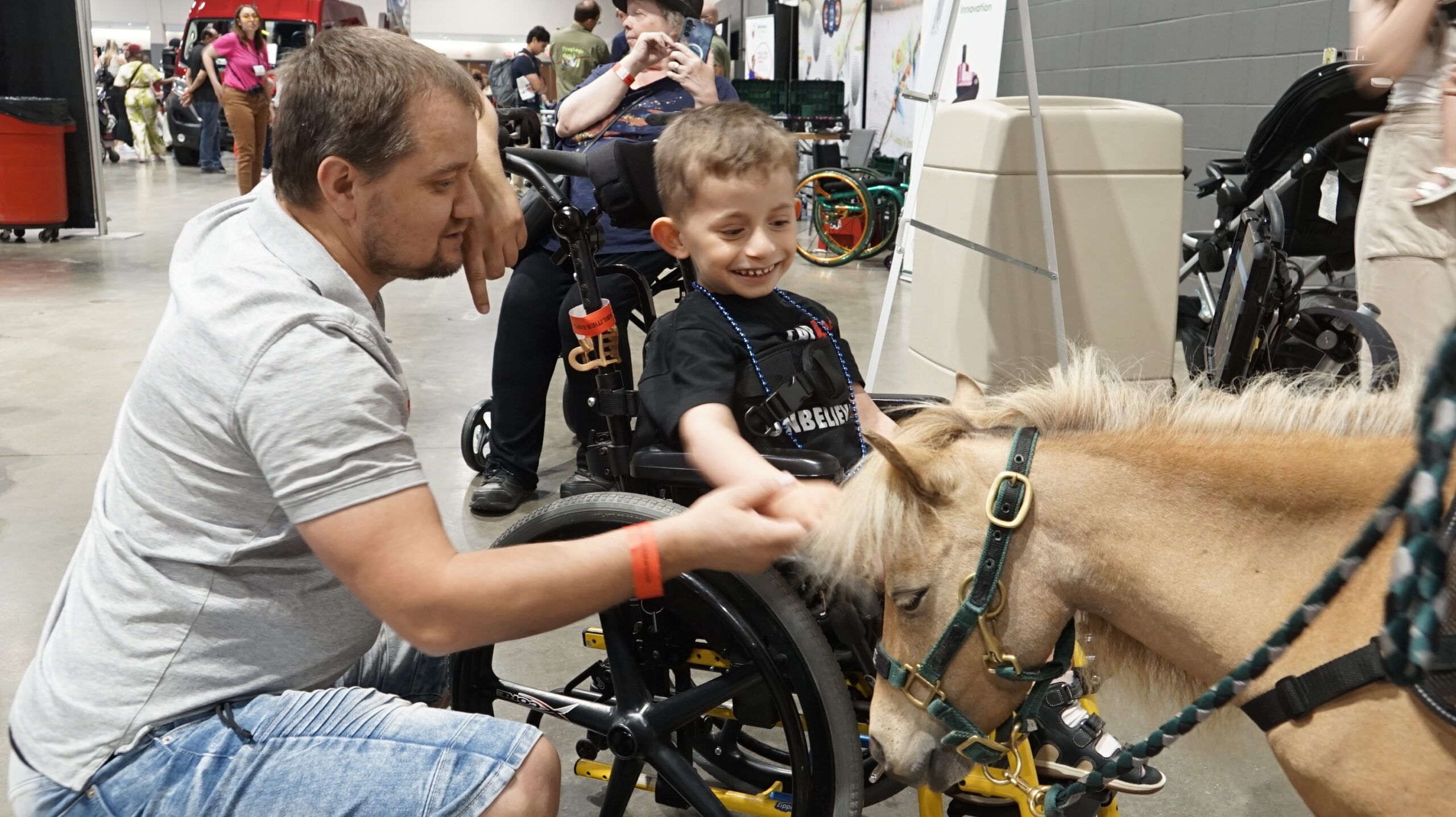Carter Keith Williams was born on April 14, 2016. He became my favorite person in the instant he came into the world. Like most parents, my husband Casey and I expected that becoming parents would change our lives. However, we never could have planned for the impact Carter would have following his diagnosis with GRIN1 neurodevelopmental disorder (GRIN1).
Carter passed away suddenly on September 28, 2023, due to complications of the condition. Although he is no longer physically here with us, he is continuing to change the world by helping me and others who knew him build awareness of GRIN1 neurodevelopmental disorder and other similar conditions.

Trusting a mother’s intuition
My experience of being pregnant and giving birth to Carter was completely normal from a medical standpoint. I went into labor at the end of my 36th week of pregnancy, but our son was healthy. I’ll never forget hearing Casey say, “It’s a boy!” as Carter was laid on my chest.
Carter was about three months old when I first suspected that he wasn’t developing normally. I told his pediatrician that it didn’t seem like he could focus his vision, track objects or make eye contact. At first, the doctor told me not to worry—Carter was born a few weeks early, so it might take him a while to catch up to other babies his age.
As the months went by, it became clear that Carter was experiencing health problems. He vomited hundreds of times a day, was unable to gain weight, wouldn’t sleep and was diagnosed with low muscle tone. We spent countless hours being told that we were imagining our son’s health problems until finally finding a pediatrician who agreed that our concerns were valid.
After months of appointments with ophthalmologists, neurologists, gastroenterologists and neuro-ophthalmologists, as well as extensive genetic testing known as Whole Exome Sequencing, Cater was finally diagnosed with GRIN1 on October 17, 2017.
Seeking answers after diagnosis
While Casey and I felt some sense of relief when Carter finally received a diagnosis, we experienced simultaneous feelings of dread and confusion—needless to say, neither of us had ever heard of GRIN1 before. The disorder was only classified in 2010 and even experts knew very little about it.
Carter’s doctors encouraged us to engage him in any therapies that seemed to help him, but they were not able to give us a picture of what our son’s future might look like. There are no treatments available for GRI-related disorders, so care options are limited to therapies, nutritional support and medications to help manage symptom severity.

Like most parents whose child receives an unfamiliar diagnosis, I began searching the internet for any information about GRIN1 that I could find. Very little information about the condition was available, but Casey and I learned that GRIN1 is part of a larger group of syndromes called GRI disorders, which can cause a wide range of symptoms, including seizures, developmental and speech delays, and muscle weakness.
Many children with the condition experience challenges with walking, talking, eating and performing basic daily activities. Casey and I also learned that there are currently no treatments available for the disorder, and care is limited to a variety of therapies, nutritional support and medications to help manage symptom severity. We had no idea what to expect from Carter’s future.
Building a rare disease community
As part of my research following Carter’s diagnosis, I began searching social media for any other families impacted by GRIN1. I was able to get in touch with a few other parents in our situation, and we all agreed that the lack of support for families impacted by the disorder largely contributed to our feelings of isolation and uncertainty.
Because of this, me and three other parents established CureGRIN, a nonprofit dedicated to improving the lives of people around the world affected by GRI-related disorders and their families through research, education and resource support.
Since we began our work in 2018, our group has grown from 30 families to thousands worldwide. We have raised more than more than $2.3 million to advance research, partner with pharmaceutical companies and champion advocacy efforts, as well as educate and connect the global GRIN community. I was even able to speak on behalf of Carter at the Louisiana state legislature, which was something I never imagined I would have the opportunity to do.
Driven by purpose after the unthinkable
In the months following Carter’s diagnosis, our family seemed to settle into our “new normal.” CureGRIN was making strides at building a strong advocacy community, and Carter was making progress while attending physical, vision, swim and occupational therapies. We were finally able to make sure he took in enough calories to gain weight and grow, and his condition had stabilized enough for him to attend school with other kids his age.
By May 2023, Carter’s health began deteriorating for no apparent reason. His blood tests were normal, but his symptoms were worse than ever. He spent the next four months fighting for his life—we were completely blindsided when he passed away.
When people hear my family’s story, they are often surprised that I am still working full-time with CureGRIN. The decision to continue my advocacy work seemed impossible at first, but I also feel lucky to be able to channel my grief and love for my son into such and important job.
I know that Carter would be so proud to see what we’ve accomplished. His memory is helping our team, as well as groups of researchers and physicians, create a world where other children will not have to struggle with the debilitating symptoms he faced. When Carter received his diagnosis, there was no research on GRI disorders occurring. Today, clinical trials are well underway and our community has hope that treatment options will become available to patients in the near future.

To learn more about the CureGRIN Foundation, visit www.CureGRIN.org.





